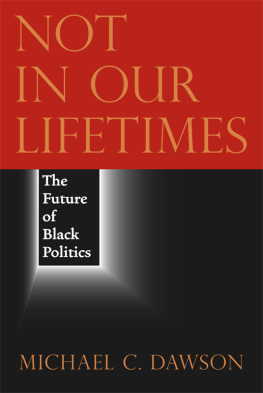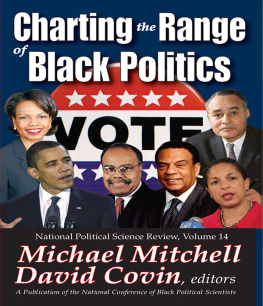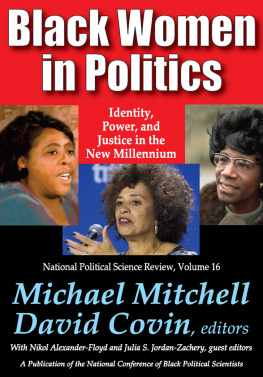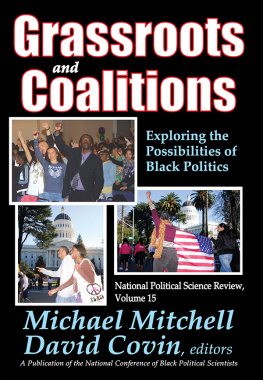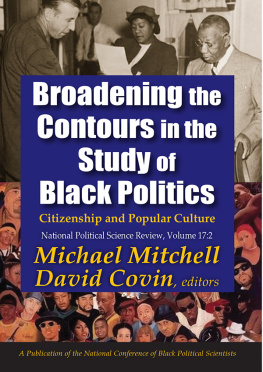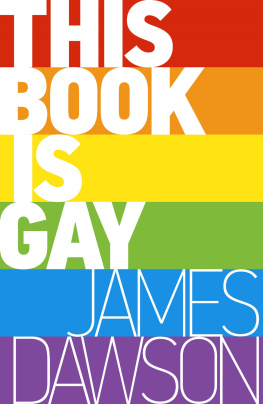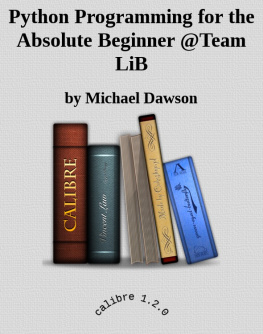Michael C. Dawson is the John D. MacArthur Professor of Political Science and the College at the University of Chicago and the author of Black Visions and Behind the Mule: Race, Class, and African American Politics.
The University of Chicago Press, Chicago 60637
The University of Chicago Press, Ltd., London
2011 by The University of Chicago
All rights reserved. Published 2011.
Printed in the United States of America
20 19 18 17 16 15 14 13 12 11 1 2 3 4 5
ISBN-13: 978-0-226-13862-6 (cloth)
ISBN-10: 0-226-13862-3 (cloth)
ISBN-13: 978-0-226-13865-7 (e-book)
Library of Congress Cataloging-in-Publication Data
Dawson, Michael C., 1951
Not in our lifetimes: the future of black politics / Michael C. Dawson.
p.cm.
Includes bibliographical references and index.
ISBN-13: 978-0-226-13862-6 (cloth: alk. paper)
ISBN-10: 0-226-13862-3 (cloth: alk. paper) 1. African AmericansPolitics and government. 2. United StatesRace relationsPolitical aspects. 3. United StatesRace relationsPublic opinion. 4. African AmericansAttitudes. 5. Hurricane Katrina, 2005Social aspects. I. Title.
E185.615.D396 2011
323.1196073dc22 2011014686

This paper meets the requirements of ANSI/NISO Z39.48-1992 (Permanence of Paper).
PROLOGUE
I am a barbarian, albeit an educated one. I have been aware of this status of mine for a very long time. But it was brought back to me with particular force recently during a class I was teaching, when I came across a passage by the late Harvard political scientist Samuel Huntington. Becoming white and Anglo-conformity, wrote Huntington approvingly, were the ways in which immigrants, blacks and others made themselves Americans.
I can play that game. It is nearly a requirement if one wants to become credentialed (not necessarily educated) in institutions of higher learning. I chose not to play a long time ago.
Im also a materialist. Not in the sense often disparaged by contemporary political theorists, as someone who believes that all social and political consciousness emerges out of ones subject position, out of ones place in the multiple hierarchies of power. Nor am I a materialist in the sense that being behind the veil or, in the language of many Marxists and feminists, that occupying a certain standpoint necessarily implies a greater likelihood of having an enlightened (read: radical) political outlook.
Im an old-fashioned barefoot materialist. I believe that being located at the bottom of the social order, especially at the bottom of more than one of the hierarchies, is to be unjustly condemned to a life of frequently crippling disadvantage. The existence of these power hierarchies calls the social order itself into question as a matter of simple justice. It follows that political movements, to be progressive, must center on the overcoming of injustice. Black and progressive movements begin in an account of the material realities that people face on the ground, in an understanding of how these realities were produced, and a keen grasp of how they are reproduced by the workings of power, both inside and outside disadvantaged communities. I believe in building movements to win justice for allstarting with justice for those at the bottom.
I contend that for democratic, progressive movements to thrive in the United States, a healthy black politics is indispensable. Black political movements historically have formed a leading edge, in many eras the leading edge of American democratic and progressive movements. Why this has been the case and, more important, what stands in the way of black politics regaining that dynamic status are questions that will be explored throughout the coming pages. For now it is enough to note that this status has been lost, that over roughly the last half century we have moved from an era of black insurgency in this country to what has been aptly characterized by Cornel West as a period of black nihilism. Misdirected anger and a throttling despair have taken over from a mobilization of forces that is correctly termed insurgent because the change sought by these forces was nothing less than transformative. Indeed, looking back at the demands levied by Malcolm X, Dr. King, and others, we can say without qualification that had these aims been even largely achieved, the political and social order we see around us would not exist. More to the point, we do well looking back on this period as an insurgency, not to romanticize the insurgents, but to better understand the counterinsurgency that it provoked and that is in many respects ongoing, even in the absence of effective challenge. Without a mobilized black politics, American democracy is even more vulnerable to attack from within by those such as the neoconservatives and neoliberals who have been openly suspicious of mass democratic movements for decades.
Therefore, in order to transform America into a just democracy, it is necessary to rebuild black politicsincluding its radical wing. This in turn means rebuilding black political organizations and the black public sphere. The latter is necessary to fulfill the two historic tasks of the black public spherefirst, as an arena for debate about black politics, justice, and which way forward; and second, as the platform from which interventions into local regional and national mainstream, predominantly white, political discourse are launched in an attempt to influence politics and policy. Understanding the necessity for transforming black politics is crucial for resurrecting the ongoing, but currently flagging, task of transforming American democracy into something it never has beena just democracy. The revitalization of black politics is made more difficult by the increased salience of class divisions within black politics.
Black politicsAfrican Americans ability to mobilize, influence policy, demand accountability from government officials, and contribute and influence American political discourse, all in the service of black interestsis still extremely weak. This weakness undermines the quest for justice in two areas that have been central concerns of black political movements: the quest for racial justice and the quest for economic justice for all. The apparent recovery of black politics (signified by Obamas election and inauguration) from the low point it reached in the aftermath to the Katrina disaster is an illusion.
Dispelling this illusion is a critical and urgent task, one necessary if black politics is to be rebuilt. As meaningful as the election of Barack Obama may be from a number of important points of view, it is illusory to believe that it signifies the recovery of black politics. For many years now, the capacity of African Americans ability to mobilize, influence policy, demand accountability from government officials, and contribute to and influence American political discourseeven exclusively in the service of black interestshas been extremely weak, and it remains so. This weakness undermines the quest for justice in regard to the two concerns just identified as central to black political movementsthe quest for racial justice and the quest for economic justice for all.
Also illusory is the idea that we live in a post-racial America. Ones life chances are still on average, especially for the poor, disadvantaged by being black. Market discrimination against blacks is still a reality, even for the well-off and well-educated. The black poor, if anything, find themselves in conditions of greater deprivation now than at any time in the recent past. Racial inequality remains a brute fact of life in this country, one aggravated, to be sure, by the intersection of race, class, and gender.
 This paper meets the requirements of ANSI/NISO Z39.48-1992 (Permanence of Paper).
This paper meets the requirements of ANSI/NISO Z39.48-1992 (Permanence of Paper).

